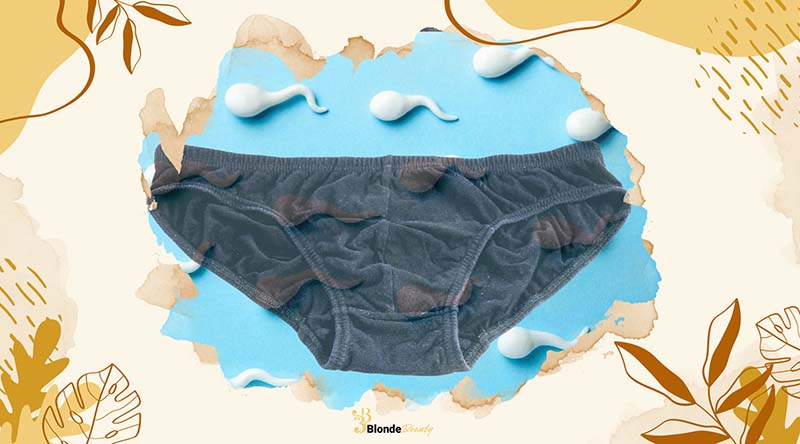Choosing the right underwear is crucial not only for comfort but also for your health. It’s essential to consider how the fit and style of your underwear can impact your well-being, particularly when it comes to reproductive health.
This brings us to a critical question: Does tight underwear affect erectile dysfunction? For guys, underwear serves more than the purpose of comfort; it helps keep everything in place and provides protection against potential accidents, such as entanglements with zippers.
However, if you notice marks on your skin from your underwear, it could be an indication that they are too tight, which may have adverse effects on your health.
You should also read the following articles:
- Does Saw Palmetto Increase Testosterone Levels? Is It Safe?.
- Is Onion a Natural Remedy for Erectile Dysfunction? Tips to Use.
- Does Frequent Sex Increase Testosterone? Other Benefits.
Does Tight Underwear Affect Erectile Dysfunction?
Wearing tight underwear isn’t directly connected to causing erectile dysfunction (ED). Though tight undies might be linked to infertility because they can raise the temperature around the testicles, there’s no solid medical evidence showing that tight underwear causes ED.
This misconception has been debunked by experts in urology and health organizations. The causes of ED are complex and can involve physical, psychological, and lifestyle factors like smoking, drinking alcohol, and certain medications.

How Do Tight Underwear Affect Men?
Here are three significant reasons to avoid tight underwear:
Blood Circulation Is Reduced
Tight underwear can hamper blood circulation due to constrictive elastic. This restriction can diminish blood flow to the penis, testicles, and thighs, potentially contributing to erectile dysfunction (ED) and compromising testicular health.

Heat Accumulation
Tight undies create a heat-trapping environment around the genital area, causing temperatures to rise. This elevated heat can negatively impact sperm quality and development, potentially leading to reproductive issues.
Increased Risk of Skin Infections
The snug fit of tight underwear traps moisture, promoting bacterial growth and increasing the risk of various skin infections.
Sweat, combined with limited airflow, creates an ideal breeding ground for bacteria, potentially causing unpleasant odors, rashes, chafing, and cuts.
Additionally, tight underwear may exacerbate discomfort and delay healing in case of cuts or injuries.
Causes Varicocele
Contribute to the development or worsening of varicoceles, swollen veins in the scrotum, which can affect sperm production and quality.
Causes Discomfort
Cause general discomfort, reducing overall well-being and confidence, particularly during prolonged wear.

Causes Urinary Tract Problems
Exert pressure on the urinary tract, potentially leading to urinary tract problems such as infections or increased frequency of urination.
Opting for underwear with a more relaxed fit can help mitigate these risks and promote better reproductive and overall health.
Does Tight Underwear Affect Sperm?
Recent research in Human Reproduction highlights how tight-fitting underwear affects sperm count. The research revealed a correlation between wearing tight undergarments and reduced sperm count.
Male infertility accounts for approximately half of all cases where couples struggle to conceive. Often, infertility issues stem from problems with the sperm itself, such as low sperm count, poor motility (inactive or slow-moving sperm), or abnormal sperm morphology.
For couples trying to conceive, concerns about fertility often center around low sperm count. In many cases, something as seemingly simple as changing underwear can make a significant difference in fertility outcomes.
Ideally, the testicles should be situated outside the body within the male reproductive system to maintain a lower temperature than the body’s core temperature.
Elevated temperatures, such as those caused by constantly wearing briefs, can disrupt sperm production. Therefore, there are clear implications of the adverse effects of tight underwear on sperm health.

How to Choose the Right Underwear
To ensure optimal comfort and health, here’s how to choose the right underwear:
Choose Breathable Fabric
Opt for underwear crafted from natural, breathable materials like cotton.
These fabrics facilitate better air circulation, reducing the risk of moisture buildup and promoting freshness throughout the day.
Choose The Right Size
It’s crucial to choose underwear that fits properly without being too tight. Properly fitting underwear provides adequate support without sacrificing comfort.
Avoid overly constrictive styles that may impede blood circulation or cause discomfort.
Always Pay Attention to Daily Activities
Tailor your underwear choice to your daily activities. For instance, if you’re engaging in intense physical exercise, opt for supportive underwear that allows for freedom of movement without being overly restrictive.
Choosing the appropriate style for your activities can help prevent discomfort and chafing.
Maintain Regular Hygiene
Regardless of the fabric or style, practicing good hygiene is essential. Ensure you change your underwear daily, wash them with gentle detergent, and avoid wearing damp or sweaty underwear for extended periods.
Proper hygiene helps prevent infections and skin irritation, promoting overall health and comfort.
Conclusion
In conclusion, when it comes to underwear, choosing the right fit is key to maintaining both comfort and health, especially when considering the question: Does tight underwear affect erectile dysfunction?
Opt for breathable fabrics like cotton, ensure proper sizing for support without constriction, and consider your daily activities for optimal wear. Remember, prioritizing hygiene is crucial to prevent infections and irritation.
Making informed choices about your underwear can significantly impact your reproductive health and overall well-being.
Visit other Blondebeauty articles to gain more health knowledge.

Laureate Professor Clare Collins
Professor Clare Collins is a leading expert in nutrition and dietetics at the School of Health Sciences, part of the College of Health, Medicine and Wellbeing. Her work is changing the way we think about food and health. She grew up as one of nine children and was the first in her family to finish high school and go to college. This background gave her a strong work ethic and a deep appreciation for seizing opportunities.
As the Director of the Hunter Medical Research Institute’s Food and Nutrition Program and a recipient of three NHMRC Research Fellowships, Professor Collins is making a big difference in public health. She focuses on helping people who are often overlooked, using new technologies like apps and online programs to improve their nutrition and reduce the risk of chronic diseases.
Professor Collins is well-respected and has been recognized as a Fellow in four major health and science organizations. She leads a diverse team of experts, including dietitians, computer scientists, and engineers, working together on global health projects.
Her achievements are impressive. She has received over $29 million in research funding, published more than 450 papers, and helped 35 PhD and Master’s students complete their degrees. She’s also active in sharing her knowledge with the public. She has developed tools like the Australian Eating Survey and the Healthy Eating Quiz, and she often appears in the media to talk about nutrition.
PUBLISHED ARTICLES
- Collins, C. (2019). “The Effect of a Pilot Dietary Intervention on Pain Outcomes in Patients Attending a Tertiary Pain Service.”
- Collins, C. (2022). “Variation in cardiovascular disease risk factors among older adults.”
- Collins, C. (2022). “Evaluation of an online intervention for improving stroke survivors’ health-related quality of life: A randomised controlled trial.”
These articles show Professor Collins’s commitment to understanding how better nutrition can improve health. Her work is important for researchers, doctors, and anyone interested in healthy living.
